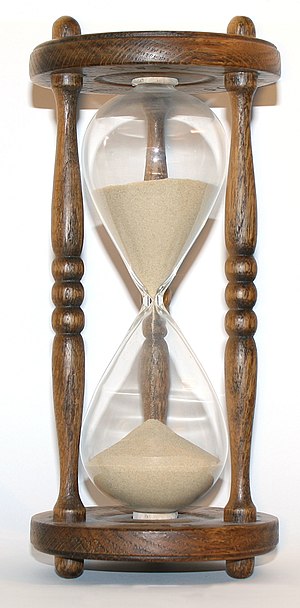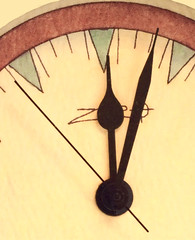The tradition is to make resolutions as we transition from one year to another. This year I have been thinking really hard what resolution I would make. Anything conventional (lose weight, sleep more, read more, speak only Spanish at home, blog every day, etc.) seem so vanilla, boring, and not at all a challenge. I finally found something interesting, though. My resolution is to abandon the Gregorian calendar and adopt a better one.
I would completely love a decimal calendar but it is messy. Who could handle 10-day weeks? Also, the sidereal year (365.256363 days) is not really divisible by 10.
Mayan Doomsday
In these times, some people might feel drawn to the Mayan calendar. Although the Olmec and Mayan “Long Count” ends December 21, 2012, I don’t think they really meant that the world ends on that day. I think they just either ran out of wall to write it on, or just figured that the next guy can figure out the dates after that. Or maybe the last guy who knew how to extend the Long Count was “hit by a bus”, and they didn’t cross-train properly. In any case, the whole Mayan doomsday is rubbish.
Partyday Calendar
A friend pointed out to me a perpetual calendar called the “Partyday Calendar”. It is a variation of the “International Fixed Calendar”, invented by Moses B. Cotsworth. (That calendar was the official calendar of the Eastman Kodak Company until 1989.) The idea is that you have 13 months, each consisting of 28 days and one party day per year (two on leap years). Since it is a bit hard to find, here it is. It is perpetual, and easy to remember. It still has 7-day weeks, which are important for many religions. That kind of calendar could be a viable option.
Hunky-dory
I recently heard about a new calendar reform effort, the Hanke-Henry (HH) calendar reform. You can read about it here. It is a perpetual calendar, but it also introduces a new way to deal with time: get rid of the time zones. So, when it is 14:00 (2:00 PM) in Utah, it is also 14:00 in Finland. So you don’t have to translate time between the time zones. The side effect is that the day starts at a different time for people around the world. If you like to get up at 5:30 according to the “old” clock, with the Hanke-Henry system you would be getting up at 12:30 in Utah, or 3:30 in Finland (using the 24-hour clock). So it mi ght require some adjustment in thinking, but your internal clock would not need any changing.
ght require some adjustment in thinking, but your internal clock would not need any changing.
This discrepancy of daylight and change of calendar day is the most difficult obstacle. For some things you have to start thinking with more senses. For example, right now it is already Monday (2012 Jan 02 Mon 00:47:09) but for me it really is still Sunday. It is a day off, Sabbath. In a way it is similar to changing from all the different European currencies to Euro. For a while people had to think translate in their head the price of milk to figure out if it was a reasonable price. But, after a while people just learned the good price in Euros. So, maybe a change to a Universal Time wouldn’t be that complicated.
So, all my friends, I hope you have taken notice. From now on, when I suggest to meet on a certain date and a certain time, remember that I will be using the HH calendar. It is the way of the future, just get used to it.
If you didn’t get enough, go read http://personal.ecu.edu/mccartyr/calendar-reform.html


 WhatsApp Me
WhatsApp Me